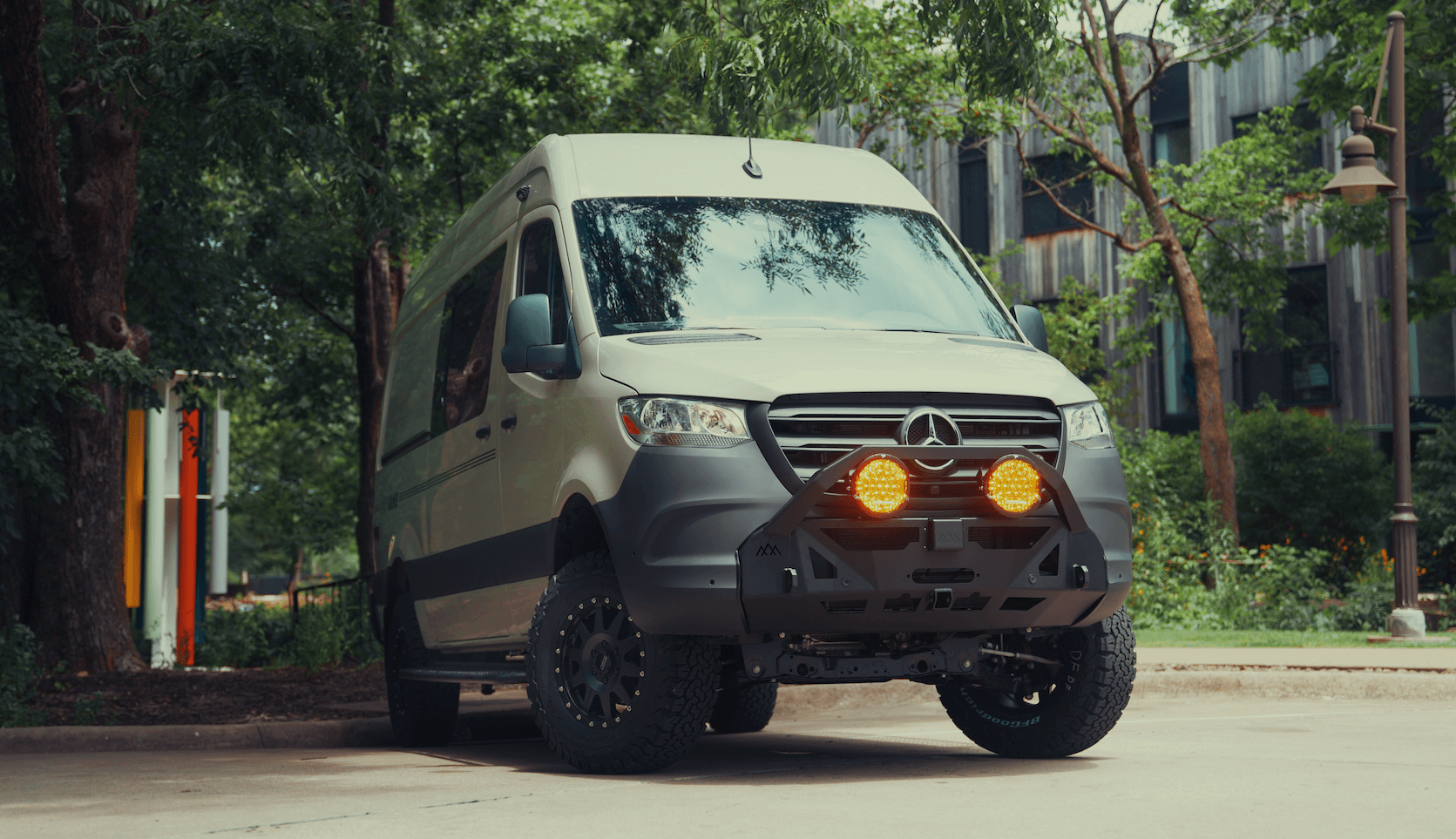Recreational Vans

A van is a compact living space with dense systems and soft goods, which means a small incident can escalate quickly. Two exits cut the time needed to escape and provide options if a fire starts near the galley, if a vehicle strikes a door side, or if cargo shifts and blocks the way. A primary exit is usually the side door, while a secondary exit might be a rear door or a dedicated escape window near the bed. Redundant egress is especially important when the sleeping area is elevated, when pets or kids ride along, or when the van is used off grid far from help. Treat the second exit as essential life safety, not an optional convenience.
Design starts with the question: where do people actually sit and sleep. Place one exit within easy reach of the main living zone and another accessible from the sleeping zone without climbing over obstacles. For most layouts that means a side door plus an emergency egress window above the bed or a rear door pathway kept clear.
Consider these fundamentals:
Escape windows come in several forms. A top hinge awning unit opens wide and sheds rain but needs a large clear arc. Slider windows with a lift bar can be quick if the opening is large enough and the screen releases easily. Dedicated escape windows use bright red latches, sized to allow a person to pass through without contorting. Whichever you choose, confirm the opening is generous, the hardware is intuitive, and the frame is rigid after installation.
Many vans have three factory doors, but custom furniture can block them. If a bed deck or storage box spans the rear, leave a crawl path or a step gap that lets a person move through fast. Use soft latches and low profile handles to prevent snags, and confirm child locks do not trap occupants. Test with full bedding and winter clothing to ensure real world clearance.
Cutting a new window requires careful layout, corrosion protection, and reinforcement at the cut edge. Use templates, de burr the opening, prime exposed metal, and seal with a compatible urethane. Keep thermal breaks intact where possible to manage condensation, and integrate shades or screens that detach with a single pull. After install, water test the perimeter and verify the latch cycles cleanly.
There are industry standards for recreational vehicles that call for a primary and secondary means of escape. While vans are not houses, the idea holds true: give sleeping occupants a direct way out that is not the cooking area. Focus on function over labels. A well sized window near the pillow line or an unblocked rear door can satisfy the intent of a second exit.
Training matters as much as hardware. Walk through an escape drill at night a few times per year. Count out loud to keep pace, and adjust layouts if something slows you down. Place a multi rated extinguisher by the galley and another near the bed. Pair smoke and carbon monoxide alarms with a visible exit plan posted inside a cabinet.
Maintenance is simple and powerful:
Different platforms present different advantages. High roof vans invite top hinge windows that open widely without hitting furniture. Low roof models may favor sliders to protect headroom. Long wheelbase layouts can create blind corners around the bed where smoke pools. In those cases, consider a window that opens at the highest practical point near the sleeping area.
Common mistakes include placing a tall closet between the sleeper and the nearest exit, choosing window latches that require two hands, or mounting a fixed mosquito screen that cannot be removed instantly. Another frequent misstep is adding a rear garage wall that looks tidy but blocks both rear doors. Solve this by adding a central gap, a lift panel, or a quick release section.
Two exits work best as a system. That system includes a clear plan, easy hardware, visible guidance, and regular practice. When the layout, materials, and install are coordinated from the start, safety and comfort coexist without compromise. The result is a rig that feels calm at night and confident on the move.
If you want a build partner who designs safety in from day one, explore our recreational vans. For tailored layouts that preserve clear egress and sleeping comfort, see our custom build van page. If you prefer a finance friendly platform with smart layouts that respect escape paths, check our mainstream vans.
OZK Customs builds vans that balance adventure, comfort, and safety. We design secondary egress near the sleeper, preserve door pathways, select intuitive hardware, and test every latch before handoff. Tell us how you travel and we will craft a layout that feels natural in daily use and gives you options when seconds matter.
Start a conversation about your layout, your travel style, and your safety goals.
We can plan a complete custom build or a partial upfit that improves egress without losing storage or comfort.
Begin here and we will turn your vision into a safe, capable van.
Explore recreational vans for platforms and inspiration.
Learn about our custom build van process.
See finance friendly options at mainstream vans.
What we do
Make your layout safe without guesswork. Our team designs and builds van interiors that maintain clear, code aware egress with the right windows, doors, and releases. Tell us how you travel and we will engineer two dependable exits into your plan. Start your custom build quote now.
ADDRESS:
6159 E Huntsville Rd, Fayetteville, AR 72701
PHONE:
(479) 326-9200
EMAIL:
info@ozkvans.com